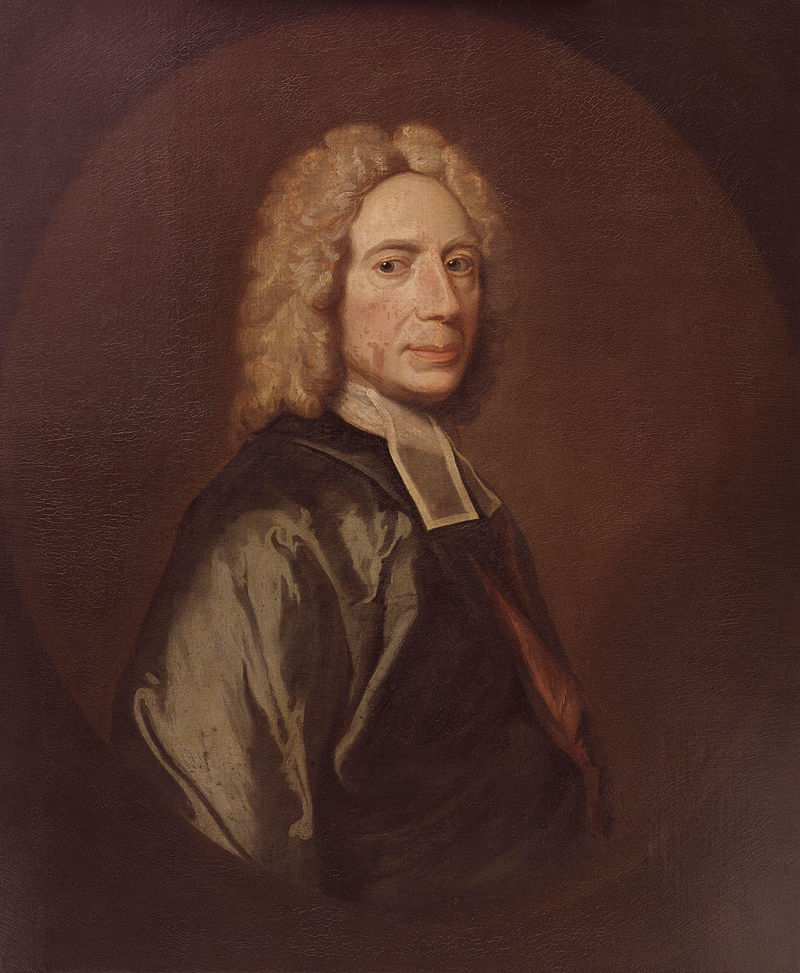|
As an English Christian Minister as well as a theologian and logician, Isaac Watts is recognised as the “Godfather of English Hymnody” and is credited with at least 750 hymns. Many of Watts’ hymns are still used today, particularly When I Survey the Wondrous Cross and the popular Christmas carol Joy to the World.
Isaac Watts was born in Southampton in 1674 to nonconformist parents. At the time, it was illegal to go against the teachings of the Church of England and Watts’ father was imprisoned on two separate occasions. From a young age, Watts had the tendency to invent short rhymes, which angered his father who would beat him as punishment. Instead of deterring the young boy, Watts responded: “O father, father, pity take And I will no more verses make.” Watts attended the independent King Edward VI School in Southampton where he learnt Latin, Greek and Hebrew, however, due to his nonconformist background, he was not allowed to attend prestigious universities, such as Oxford and Cambridge. Instead, Watts attended the Dissenting Academy at Stoke Newington. After completing his education, Watts felt called to enter the church, becoming the pastor of Mark Lane Congregational Chapel in London. He also helped to train preachers, focusing on religious education rather than the teachings of a particular denomination. Later, Watts worked as a private tutor for a nonconformist family in Stoke Newington where he got to know their neighbours, Sir Thomas Abney and Lady Mary. Eventually, Watts moved into the Abney household where he remained for 36 years, even after the death of Sir Thomas. Watts was still living at Abney House when he passed away in 1748. Watts particularly liked the grounds at Abney Park in which the house was situated. It was here that he wrote many of his hymns, essays and educational works. Traditionally, hymns were based on the Psalms, however, Watts introduced new forms of poetry and encouraged the singing of hymns in general church services and not only for particular events and occasions. As well as hymns and poetry, Watts spent a great deal of time writing Logick, or The Right Use of Reason in the Enquiry After Truth With a Variety of Rules to Guard Against Error in the Affairs of Religion and Human Life, as well as in the Sciences, which was first published in 1724. Known as Logic for short, the book became the standard text on the subject at Oxford, Cambridge, Harvard and Yale – universities that he, ironically, was not allowed to attend. Despite his nonconformist lifestyle, Watts was honoured with a monument in Westminster Abbey and a statue in Abney Park. The Church of England and the Lutheran Church remembers Watts for his ministerial service in the Calendar of the Saints on 25th November, which was the date he died at the age of 74. In Southampton, the place of his birth, the Isaac Watts Memorial United Reformed Church was built after the Second World War. Since there are so many hymns by Watts, it is impossible to list them all but there is are handful, which we still sing that are worth mentioning. Joy to the World is loosely based on Psalms 98 and 96 as well as Genesis 3:17-18. Unlike other hymns based on the Psalms, the lyrics are Watts’ interpretation and call everyone to celebrate that God has brought salvation to the world. When I Survey the Wondrous Crossis significant for being a departure from the norm, only loosely paraphrasing the Bible rather than quoting Psalms or passages. The beginning of the second stanza is the closest the hymn comes to quoting the Bible. Galatians 6:14 says, “May I never boast except in the cross of our Lord Jesus Christ, through whichthe world has been crucified to me, and I to the world.” Watts adapted this verse to read, “Forbid it, Lord, that I should boast, Save in the Death of Christ my God.” Jesus Shall Reign Where’er the Sun is an adaption of Psalm 73, which may have been written by King Solomon. Watts’ lyrics “His kingdom stretch from shore to shore,” correspond with the 8thverse of the Psalm, “He shall have dominion also from sea to sea, and from the river unto the ends of the earth.” This hymn was chosen by King George III to commemorate the opening of a Christian government in the South Sea Islands. Our God, Our Help in Ages Past paraphrases Psalm 90 and is often sung at Remembrance Day services, particularly in Canada. This was the final hymn that was sung at a service on the Titanic, the morning of the day it sank. It was also sung at the funeral of Prime Minister Winston Churchill. Psalm 90 is attributed to Moses, which would make it the first Psalm to be written chronologically. Other hymns by Isaac Watts include Come Holy Spirit, Heavenly Dove, This is the Day the Lord Hath Made, and I Sing the Mighty Power of God.
0 Comments
Your comment will be posted after it is approved.
Leave a Reply. |
©Copyright
We are happy for you to use any material found here, however, please acknowledge the source: www.gantshillurc.co.uk AuthorRev'd Martin Wheadon Archives
June 2024
Categories
All
|

 RSS Feed
RSS Feed